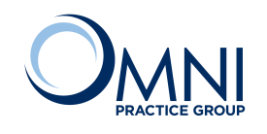Every potential practice owner comes to a crossroad where they ask themselves, "Should I buy an existing practice, or should I just go start up a new practice at a new location?" We typically suggest you find a good existing practice to purchase, but if you cannot find one that fits your needs and desires, then the alternative is to start one from scratch. There are pros and cons to both and a lot depends on your vision. Here are some things to consider before making a decision:
- Cash Flow – Buying an established practice typically gives you instant cash flow. That’s if it’s a decent practice and if it already cash flows. Cash flow is the money left over after paying all of the practice bills and your debt service on the loan for the practice. If you can find a practice in your desired area that has good cash flow, or you believe you can get it to cash flow, then, by all means, you should buy it.
With a startup practice, it can take 18 to 24 months before you break even. Cash flow would happen shortly thereafter. If you spend some time and do some good research, you can cash flow much sooner. We’ve assisted with demographics for doctors and helped them find locations which cash flowed in 6 to 9 months. - Practice Philosophy – Do you have a certain practice philosophy on managing your practice? Do you want to do certain procedures, treat clients a certain way and manage the staff in a certain manner? Then, buying an existing practice where patients and staff are set in their ways may be a challenge. Clients may be used to making payments. Staff may be used to leaving early, using their cell phone during work hours, or having their kids hang out in the staff room during work. Changing patient protocol or staff habits may result in losing some patients and staff. At a minimum, you will have disgruntled staff.
If you start up your own practice, you can mold your patients and staff in your philosophy and style. Clients can be treated and trained to pay up front, accept your treatment plans and trust you. Staff can learn from the beginning how you want them to work and what you expect. - Cost – A good practice in a good location is going to be valued at 70% up to 100% of the last 12 months collections in the current market. Great practices that are high producing with low margins in metropolitan areas are going to sell for between 90% and 100% of collections. There is a high demand for these practices, and they sell quick. In rural areas, these practices may reach 80% and possibly 85%. Low performing practices in these areas will be priced between 70% and up to 80%.
Construction costs in the Northwest are currently on the high side reach up to $200/sq. ft. They are traditionally $135/sq. ft. That is before any equipment is purchased. This puts a typical startup practice at around $500,000 to $600,000. This is a negative for currently doing a startup. The cost to build it out due to the current market is high. - Systems – With an existing practice, the systems are already in place. Patient flow, collections, insurances, staff salaries, and benefits etc., are for the most part all set up. You just need to buy the practice and copy what the current owner is doing. As long as they are good systems, then you’re in the money. If the systems are bad and going to potentially cost you more money, then you’re in for a headache. Changing systems can create problems with staff and clients.
With a startup practice, you need to create your own systems. You hire your staff and establish benefits and pay. If you have experience in doing this, or at least know what type of systems, benefits, etc., you want to put in place, then you’re okay. If not, you may be learning on the job which will end up in mistakes and cost you money. - Finances – In certain situations, lenders may ask you to keep your associate position on a part-time basis. This is just in case the practice doesn’t cash flow enough to support you or the debt. Or, you may need to have some cash in the bank in order to have something to fall back on if there is a cash shortage during any one month.
For a startup, they most likely will suggest you keep your associate job one or two days a week until your practice gets going. If your practice picks up quick, you can quit your associate job and focus on your practice.


 RSS Feed
RSS Feed